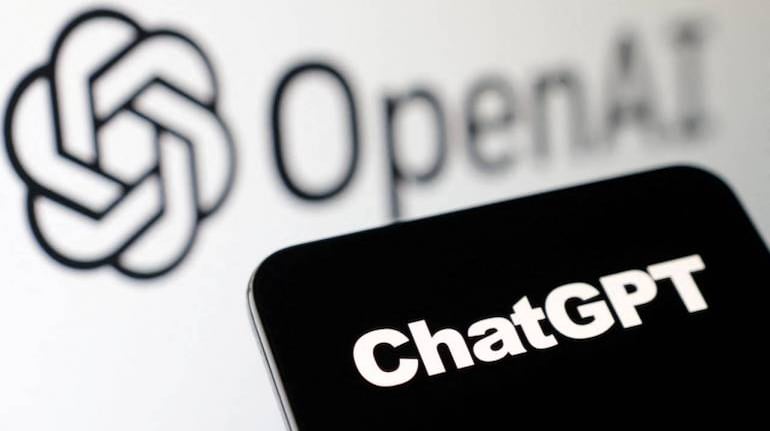



The New York Times (NYT) on December 27 sued OpenAI and Microsoft (MS), alleging that they had used the newspaper's content without permission to train its chatbots, thus infringing NYT’s copyrights.
According to NYT, these chatbots use its content to provide information to readers, thus taking a ‘free-ride on The Times’ massive investment in its journalism by using it to build substitutive products without permission or payment.’
NYT said that it is the first major US publisher to sue OpenAI, creator of the popular artificial-intelligence platform ChatGPT, and Microsoft, an OpenAI investor and creator of the AI platform Copilot, over copyright issues.
According to the plea, “OpenAI and MS generative artificial intelligence (“GenAI”) tools rely on large-language models (“LLMs”) that were built by copying and using millions of The Times’s copyrighted news articles, in-depth investigations, opinion pieces, reviews, how-to guides.”
Moneycontrol takes a look at five allegations levelled by NYT against OpenAI and Microsoft.
Profited by misusing NYT’s workAccording to NYT, both OpenAi and MS `‘greatly benefited from wrongful conduct in multiple ways.’’
The plea states that “Each defendant has reaped substantial savings by taking and using — at no cost — New York Times content to create their LLMs. Times journalism is the work of thousands of journalists, whose employment costs hundreds of millions of dollars per year.” It alleged that OpenAI and MS wrongfully benefited from nearly a century of NYT work that is protected by copyright law. According to NYT, the tech companies have effectively avoided spending the billions of dollars that NYT invested by taking it without permission or compensation.
Not fair useFair use is a concept in copyright law which permits a party to use copyrighted work without the copyright owner's permission for purposes such as criticism, comment, news reporting, teaching, scholarship, or research.
According to NYT, the use of its content to train OpenAI and MS chatbots is not fair use. The media company has stated that using its content without payment to create products that are its substitutes is not covered by the concept of fair use. According to the plea, “Because the outputs of the defendants’ GenAI models compete with and closely mimic the inputs used to train them, copying Times works for that purpose is not fair use.”
Misattributes NYT’s contentThe newspaper has alleged that the AI is causing commercial and competitive injury to it by misattributing to it content that it did not publish. According to NYT, this amounts to spreading misinformation.
The plea noted that this phenomenon is called ‘hallucination,’ whereby chatbots generated seemingly-realistic experiences that are not real. According to NYT, these hallucinations mislead users to incorrectly believe that the information is published by NYT. The media company stated that users must be shown links to its articles rather than an ‘`unauthorised copy nor inaccurate forgery’’ of its articles.
Unauthorised display of NYT articles in GPT productsNYT has alleged that the output provided by OpenAI and MS products in response to user queries shows that the defendants are engaged in the unauthorised public display of NYT’s content. That is, when a user posts a query, these chatbots display NYT’s content without authorisation. According to NYT, products such as ChatGPT Plus, ChatGPT Enterprise, and Bing Chat, among others, display NYT content in at least two ways:
(1) By showing “memorized” (stored) copies or derivatives of the content;
(2) by showing search results that are substantially similar to NYT’s content, generated from copies of NYT content stored in Bing’s search index.
Synthetic search refers to results thrown up by chatbots in response to user queries.
Wilful infringementNYT has alleged that OpenAI and MS committed these acts of infringement knowing full well that their actions involved unauthorised copying of NYT content. According to the plea, NYT’s content was used on a massive scale during training, which resulted in the unauthorised encoding of huge numbers of its works in the AI models.
The media company has stated that it had approached the tech companies to inform them that their tools infringed its copyrighted works.
Discover the latest Business News, Sensex, and Nifty updates. Obtain Personal Finance insights, tax queries, and expert opinions on Moneycontrol or download the Moneycontrol App to stay updated!
Find the best of Al News in one place, specially curated for you every weekend.
Stay on top of the latest tech trends and biggest startup news.